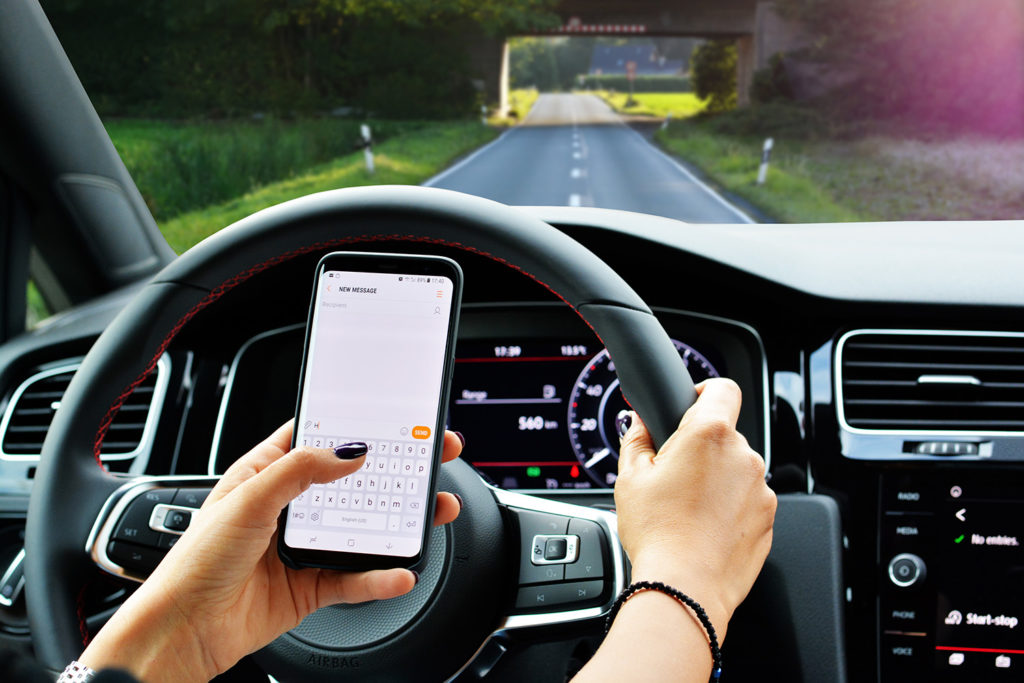By Trey Flynn – Orlando Criminal Defense Attorney
On July 1st an amended bill signed by Governor Ron DeSantis made the action commonly known as “Texting While Driving” a primary traffic offense. This means that a law enforcement officer may now be able to pull you over if they believe you were texting while driving.
Here are a few things to know about the new law:
- Drivers will still be allowed to look at their phone while at a stoplight. This was a solid compromise to a society that has glued their eyes to their devices.
- The law only bans texting while a vehicle is moving, That means you can still check your GPS or change your music. Ahhh, but how does law enforcement know the difference? We’ll get to that.
- The law requires ALL hands-free use in school zones and active construction zones. You can’t be touching your device for any reasons with-in these zones.
- Any citation is considered a moving violation; an adjudication on the offense will add 3 points to your license along with a fine. You can elect a “texting while driving” safety course much like a speeding violation to keep those points off. Very simply, this will be considered a moving violation.
- If you are a first time offender you are allowed to have your ticket dismissed in the county where the ticket was issued by the Clerk of Court if you show up with proof of purchase of a hands-free device for your car.
- Hands-free device you say? Yes, you can text as long as you don’t do so by manual entry.
A major concern in the legal community is that this law could become grounds for a pre-textual stop. This means that law enforcement could use this law to allow them to conduct a traffic violation, minor or otherwise, for the ulterior purpose as to allow the officer to really investigate a separate and unrelated, suspected criminal offense. This is a major concern in areas where crime statistics are higher, minorities are involved, or there are no other legal grounds to stop a citizen but one is created to do so.
Our legislature has addressed this issue with a provision that requires law enforcement to notate the race of the driver being pulled over and/or cited for these offenses. These statistics must be reported to the State of Florida annually.
To reemphasize, it is a defense to the offense if you are not using your phone for texting purposes. In those situations it might benefit a driver to show law enforcement what they were actually using their phones for (assuming it can be proven). YOU DO NOT HAVE TO ALLOW LAW ENFORCEMENT SEARCH YOUR PHONE. Under the amended law, any law enforcement officer would be required to inform you of your right not to search and their failure to do so could actually negate your citation and/or any criminal offenses that might arise from their invasion of your privacy.
Remember, texting while driving can be dangerous. Studies suggested it can be just as dangerous as driving under the influence of alcohol. This new texting law was largely created to protect all of us from a driver distracted by texting while at the same time balancing the public’s right to be free from an unwarranted stop, posing a risk to one’s rights.

